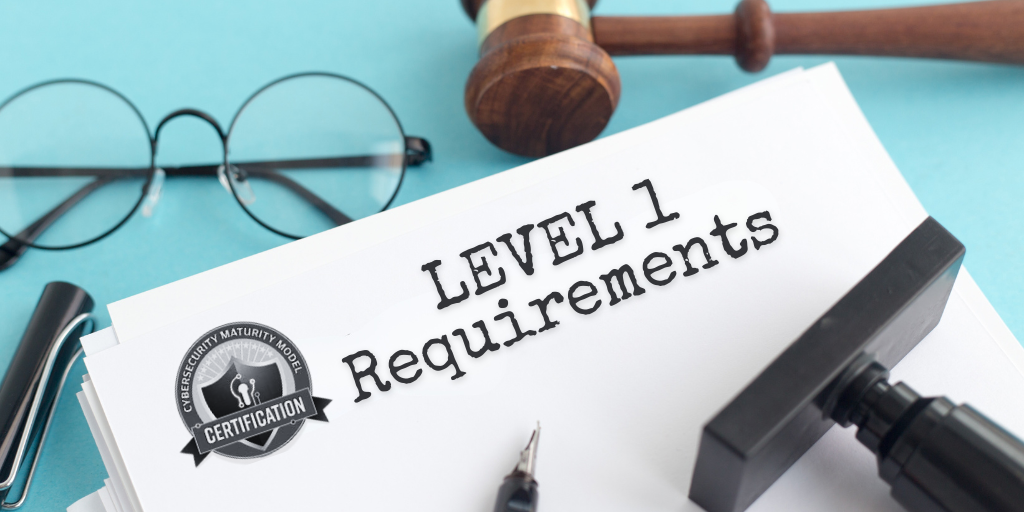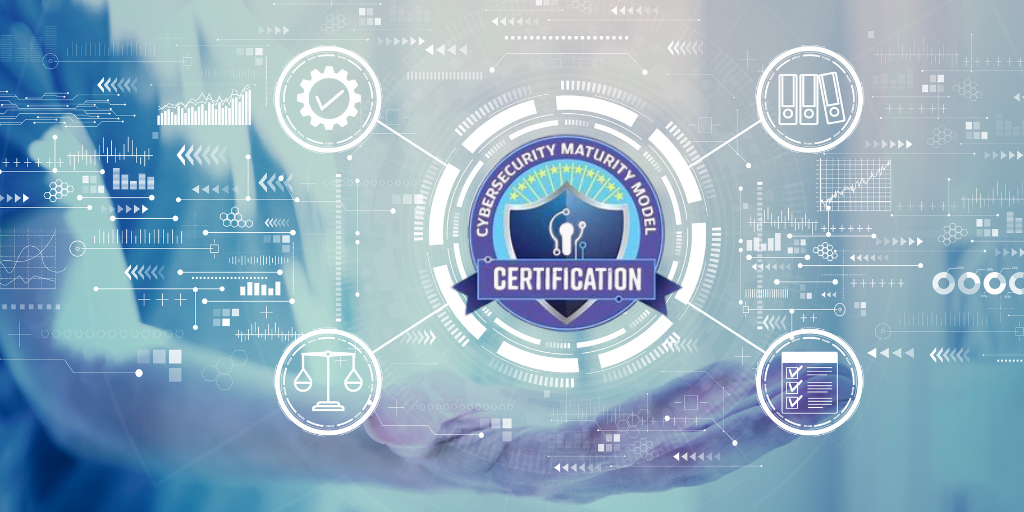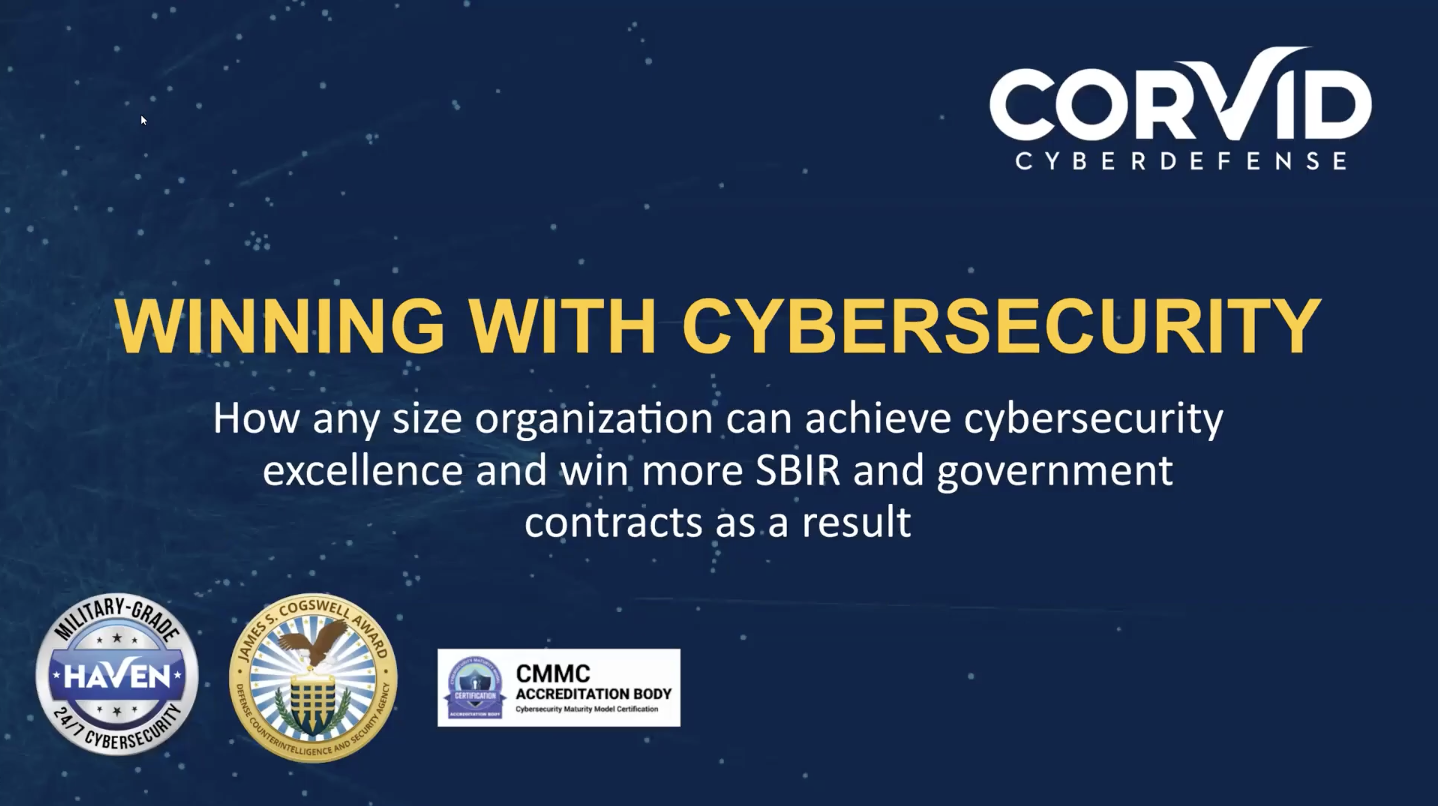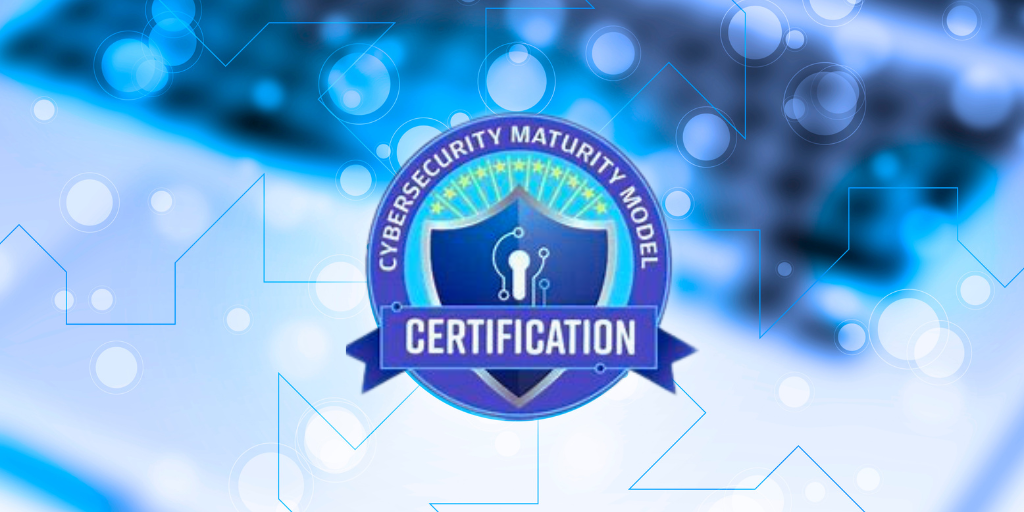Addressing CMMC Compliance Gaps for Small Businesses
Navigating the complex landscape of CMMC compliance can be a daunting task for small businesses, but with the right strategies, achieving and...
3 min read
.jpeg) Michael Markulec
:
May 7, 2025 12:23:43 PM
Michael Markulec
:
May 7, 2025 12:23:43 PM

Unlocking the Essentials of CMMC Level 1 Compliance for Government Contractors
CMMC Level 1 compliance, under FAR 52.204-21, requires contractors to demonstrate basic cyber hygiene practices when handling Federal Contract Information (FCI). These practices are the foundational step in ensuring the security of sensitive government data. This initial level of compliance is centered around implementing basic cyber hygiene practices, essential for protecting sensitive data from unauthorized access and mitigating potential cyber threats. These practices include a range of fundamental security measures designed to establish a secure baseline for contractors.
Level 1 compliance involves strict adherence to 17 specific cybersecurity practices, each vital in fortifying a contractor's cybersecurity framework. These practices are not merely procedural; they are integral to laying the groundwork for more advanced security measures that may be required at higher levels of CMMC compliance. By adhering to these practices, contractors meet regulatory requirements and demonstrate a proactive commitment to safeguarding federal information. This commitment is crucial in building trust with government agencies and ensuring the integrity and confidentiality of the data they handle.
Effective cyber hygiene is of paramount importance for the secure management of Federal Contract Information (FCI). Contractors must implement comprehensive policies that mandate regular updates and patches to all software and systems. This proactive approach is essential in minimizing vulnerabilities that could be exploited by malicious actors seeking unauthorized access to sensitive information. Regular updates ensure that systems are fortified against the latest threats, while patches address any identified security flaws, enhancing the organization's overall security posture.
In addition to these technical measures, maintaining robust password policies is critical. This includes enforcing complex passwords, regular password changes, and implementing password management tools to prevent unauthorized access. Regular data backups are another vital practice, ensuring critical information can be restored during data loss or a cyber incident. These backups should be stored securely on-site and off-site to provide redundancy and quick recovery options.
Furthermore, providing comprehensive cybersecurity training to all staff members is essential to effective cyber hygiene. This training should cover the latest cybersecurity threats, safe online practices, and the importance of adhering to security protocols. By equipping employees with the knowledge and skills to recognize and respond to potential threats, contractors can significantly reduce the risk of human error, which is often a significant factor in security breaches.
Collectively, these measures create a robust defense against potential cyber threats, ensuring FCI's integrity, confidentiality, and availability. By prioritizing effective cyber hygiene, contractors comply with regulatory requirements and firmly commit to protecting sensitive government data, fostering trust and confidence with federal agencies.
Access control mechanisms are crucial in defense against unauthorized access to sensitive information, serving as the first line of defense in a comprehensive cybersecurity strategy. These mechanisms ensure that only individuals with the appropriate permissions can access specific data, safeguarding sensitive information from potential breaches. Implementing role-based access controls (RBAC) is a strategic approach that assigns access rights based on the roles within an organization. This method ensures that employees can only access the data necessary for their job functions, thereby minimizing the risk of data breaches by limiting exposure to sensitive information. RBAC enhances security and streamlines user permissions management, making it easier to enforce security policies and audit access logs.
In addition to access control, robust identification and authentication practices are essential for verifying users' identities attempting to access systems. Multi-factor authentication (MFA) is a critical component of these practices, requiring users to provide multiple verification forms before gaining access. This could include something the user knows (like a password), something the user has (such as a security token), and something the user is (biometric verification). Employing MFA can significantly bolster contractors' security posture, adding an extra layer of protection that makes it more difficult for unauthorized users to access Federal Contract Information (FCI). This layered approach to security protects sensitive data and instills confidence in government agencies that their information is handled with the utmost care and protection.
A Virtual Chief Information Security Officer (vCISO) pivots in providing expert guidance and strategic oversight to assist contractors in achieving and sustaining CMMC Level 1 compliance. These seasoned professionals bring a wealth of experience in cybersecurity and regulatory compliance, offering bespoke strategies meticulously crafted to align with each organization's unique needs and challenges. Their expertise is not limited to generic advice; they deliver highly customized solutions that address the contractor's specific security landscape and operational requirements.
The vCISO's involvement begins with conducting thorough and detailed risk assessments, essential for identifying potential vulnerabilities and threats that could compromise the security of Federal Contract Information (FCI). These assessments form the foundation for developing comprehensive security policies that are robust and adaptable to evolving cyber threats. The vCISO meticulously oversees the implementation of these policies, ensuring that all necessary controls are in place and functioning effectively to meet the stringent requirements of CMMC Level 1 compliance.
Moreover, the vCISO's role extends to continuous monitoring and evaluation of the security measures, providing ongoing adjustments and improvements to maintain a resilient security posture. This proactive approach allows contractors to focus on their core business activities without worrying about compliance issues or security breaches. By entrusting their cybersecurity needs to a vCISO, contractors can ensure that they meet regulatory requirements and demonstrate a strong commitment to protecting sensitive government data, thereby fostering trust and confidence with federal agencies. This comprehensive support is invaluable in navigating the complexities of cybersecurity compliance, ultimately enabling contractors to operate with greater efficiency and peace of mind.

Navigating the complex landscape of CMMC compliance can be a daunting task for small businesses, but with the right strategies, achieving and...

Harbor's Matthew Webster joins the Corvid Cyberdefense team to discuss how cybersecurity excellence can be a business advantage when bidding on...

Navigating the complexities of CMMC can be daunting, but understanding its essentials is crucial for small businesses in the defense sector.